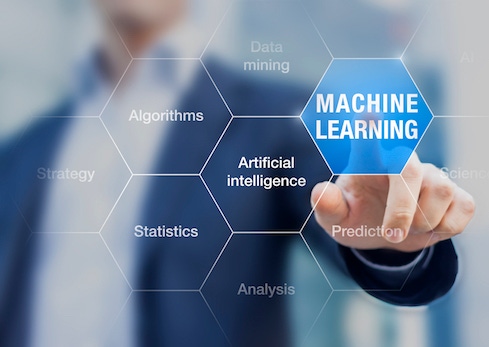Getting Machine Learning into Production: MLOps
Machine learning upstart DataRobot, which pioneered the AutoML category, acquired ParallelM to help organizations move their models into production.

Your organization may look like it is well on the way to a machine learning future. Your team is beyond the basics. They are now creating machine learning models that could impact real business problems. Yet they can only do that if those models are implemented.
Once those models are created, many organizations seem to be experiencing a disconnect in getting them implemented.
"Organizations have been developing many machine learning models, but one of our studies shows that only 47% of those models are going into production," Gartner analyst and research director Erick Brethenoux told InformationWeek. Organizations' low rate of operationalizing those machine learning models is negatively impacting the productivity of data science teams, according to Brethenoux, who specializes in artificial intellligence and machine learning at Gartner.
Yet that's where the value is.
Improving the operationalization of machine learning models is one of the drivers behind machine learning startup DataRobot's acquisition this month of ParallelM, and it's one of the big trends in the overall market, Brethenoux said.
DataRobot is a relative newcomer to the enterprise market, having launched in 2013. The company's platform automates tasks to assist both data scientists and business users to build machine learning models. It puts itself in a category called AutoML, which Forrester research has said is key to boosting data scientist productivity.
"These tools automate the end-to-end life cycle of developing and deploying predictive models -- from data prep through feature engineering, model training, validation, and ModelOps," Forrester said in its May 2019 New Wave report covering the AutoML technology category. The company places DataRobot in the Leader tier of the category, followed in that same tier by H2O.ai.
It's a category that has resonated with some pioneering enterprises, too. Although it's relatively new, DataRobot claims some big names among its customers, including BASF, Humana, BlueCross BlueShield, Carrefour, and PNC, among others.
Yet however much you can improve the productivity of model creation, if you can't put the models into production you aren't going to get the value from them. That's where the acquisition of ParallelM fits.
ParallelM adds greater machine learning deployment capabilities to what DataRobot already offers, according to Sivan Metzger, CEO of ParallelM, who spoke with InformationWeek. Metzger will serve as managing director for a new business inside of DataRobot called MLOps and Governance.
He calls the category MLOps, or machine learning operations -- a play on the DevOps name and philosophy of creating, testing, and deploying code.
Metzger had spent a career as a non-technical executive of technology companies, including Kenshoo, which used machine learning to optimize advertisement spending on Facebook and Google. But he recognized that even if the organization was well-staffed with data scientists, that didn't necessarily translate into production value. Fixing that value gap was the goal behind starting ParallelM.
"Today in the market there aren't really that many solutions that provide you, as an IT operations group, to be able to run machine learning models effectively and safely in production," he said. "This is what MLOps actually is. It's like DevOps for machine learning models."
That gap between the number of models that are created and those that actually make it to production is a huge speed bump to the success of machine learning in the enterprise. Once organizations can get beyond that, organizations will be able to get the much greater value from their machine learning investments, according to Metzger.
That, in turn, should help DataRobot's enterprise customers, Gartner's Brethenoux said.
"They are getting a complete platform, which could be augmented with data preparation capabilities, for the development of machine learning models to their operationalization in one environment, and overall the full management of their lifecycle," he said.
"Operationalizing models is where the business value is realized."
For more on machine learning, check out these articles:
Is AutoML the Answer to the Data Science Skills Shortage?
The Title Machine Learning Engineer Will Start to Disappear
Data Science: A Guide to Careers and Team Building
5 Traits Organizations Need to Get Value from Machine Learning
About the Author
You May Also Like






